Less than three weeks remain before Major League Baseball's July 31 trade deadline, and this year, the stakes are higher. The collectively bargained decision to eliminate August trade waivers removes a second deadline for dealing, albeit one that required teams to jump through multiple hoops. Now, everything is accelerated, including each team's decision to be a buyer or a seller, or to simply remain in wait-and-see mode.
Buyers now have less time to decide how to address their needs, and no fallback period during which they can focus on secondary, depth-oriented concerns. Potential sellers have less time to make up their minds as to whether they have a realistic shot of clawing their way back into the races, leading them to trade present assets for future ones; they also have less chance of unloading the type of big-contract players that usually go unclaimed during the August waiver period.
As Cleveland Indians president of baseball operations Chris Antonetti said recently regarding the single deadline, "I don't think it will have too much of an impact on those big deals, but I do think it will force teams to assess their depth and make a lot of smaller trades early to be able to make sure that if anything happens in August or September, they're well prepared for it. I would expect the overall volume of trades will increase prior to July 31, even if they may not be the headline-grabbing ones."
What follows is a look at 10 teams whose top executives (general managers or presidents of baseball operations) will have the greatest impact on the deadline. Within each group, I've ranked the teams in order of their records -- worst to best among the sellers, who have the potential to deal players whose services will be highly sought, and best to worst among the buyers, who will compete for those highly sought players.
Sellers
 Detroit Tigers (28-57, fourth in AL Central)
Detroit Tigers (28-57, fourth in AL Central)
July 18 will mark the two-year anniversary of when the Tigers traded J.D. Martinez to the Diamondbacks, thus beginning a teardown that soon sent away Justin Upton, Justin Verlander, Justin Wilson and Justin -- er, Alex Avila, son of general manager Al Avila. Things haven't improved much for the Tigers since, hence the raised eyebrows when Al Avila was rewarded with a multiyear extension before navigating this crucial deadline.
Right fielder Nicholas Castellanos, a pending free agent, ranks among the top available bats (which testifies to the market's lack of position-player depth). Closer Shane Greene, also a pending free agent, carried a 1.09 ERA into his first All-Star appearance. Avila's biggest chip -- one he doesn't necessarily have to deal -- is southpaw Matthew Boyd, who owns the majors' fourth-highest strikeout rate (32.0%) and has three years of club control remaining; the hope is that he can fetch a multiplayer package with headliners the caliber of Eloy Jimenez and Dylan Cease, whom the Chicago White Sox received in the 2017 Jose Quintana trade.
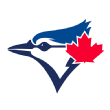 Toronto Blue Jays (34-57, fourth in AL East)
Toronto Blue Jays (34-57, fourth in AL East)
Blue Jays general manager Ross Atkins is rebuilding and has some very compelling players to offer. Atop the list is righty Marcus Stroman, who has rebounded from a dismal 2018, is reasonably healthy (he did have a recent left pectoral cramp) and has one remaining year of arbitration eligibility. Closer Ken Giles, who recently returned from a bout of elbow inflammation, also has one year remaining and might be the best ninth-inning option on the market, depending upon the Padres' willingness to move Kirby Yates. Righty Daniel Hudson is a lower-impact reliever who could still help bulk up a bullpen. Shortstop Freddy Galvis and first baseman Justin Smoak, both switch-hitters, could fit contenders as well.
 New York Mets (40-50, fourth in NL East)
New York Mets (40-50, fourth in NL East)
Brodie Van Wagenen's first season as GM hasn't gone as planned, to say the least. The trade for Robinson Cano and Edwin Diaz looks like a disasterpiece, particularly with both former first-rounders the Mets sent the Seattle Mariners, pitcher Justin Dunn and center fielder Jarred Kelenic, playing their way into the Futures Game. So do the free-agent signings of Jeurys Familia, who owns a 7.50 ERA, and Jed Lowrie, who has been sidelined all season due to a left knee sprain.
At the very least, the time is right to deal pending free agent Zack Wheeler, even though he has underperformed, and if Jason Vargas' lack of accountability for his physically threatening a reporter truly angered the front office, he should be outbound, too. So should Dominic Smith, who is blocked at first base by Pete Alonso but could fetch a significant return given that he's under club control through 2024. If a bigger shake-up is in order, Noah Syndergaard's upside and club control through 2021 could make him the deadline's No. 1 trade target. The real question is whether Van Wagenen and the Wilpons will concede it's time for a shakeup; realistic assessments of this team aren't terribly common in Queens.
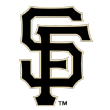 San Francisco Giants (41-48, fifth in NL West)
San Francisco Giants (41-48, fifth in NL West)
Likely no executive will have a greater impact on this year's deadline than Giants president of baseball operations Farhan Zaidi. Since arriving from the Dodgers last fall, he has begun a long-overdue rebuilding process, but has yet to deal players who stand among the deadline's top targets at their respective positions -- which cover just about the entire diamond.
Atop the list is 29-year-old lefty Madison Bumgarner, a pending free agent whose postseason credentials are unrivaled but whose run-prevention skills have eroded somewhat. Plus he's got a no-trade clause that includes eight clubs, all contenders. Also of interest and likely available are lefty relievers Will Smith and Tony Watson, righty reliever Sam Dyson, righty starter Jeff Samardzija, catcher Stephen Vogt, corner infielder/outsized icon Pablo Sandoval, center fielder Kevin Pillar and possibly first baseman Brandon Belt, who's signed through 2021.
 San Diego Padres (45-45, third in NL West)
San Diego Padres (45-45, third in NL West)
While Manny Machado and Fernando Tatis Jr. have helped the Padres become a much more competitive and entertaining team, they're currently wild-card material at best, and general manager A.J. Preller could use several desirable trade chips to better his club long term. Kirby Yates, a first-time All-Star, has one remaining year of club control, and while he won't produce a Brad Hand-like return -- Hand, with two-plus years of control, netted a top-20 prospect in catcher Francisco Mejia -- Yates will obviously return something of value. Ground-balling righty reliever Craig Stammen is a solid rental option.
The real question is whether (and how) Preller will clear a corner outfield logjam involving the struggling, expensive Wil Myers (who's owed $61 million beyond this season), pre-arbitration sluggers Hunter Renfroe and Franmil Reyes, and top-100 prospect Josh Naylor. Outside of trading Machado, Tatis and Eric Hosmer, just about anything seems possible if Preller can get the "young arms" he reportedly seeks.
Buyers
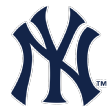 New York Yankees (57-31, first in AL East)
New York Yankees (57-31, first in AL East)
Despite a staggering number of injuries -- at one point, their top five home run hitters from 2018 were sidelined -- the Yankees own the American League's best record despite a rotation that has lacked Luis Severino all season due to rotator cuff inflammation and a latissimus strain, and one in which J.A. Happ has struggled. Thus general manager Brian Cashman's top priority is a starter, with Bumgarner, Stroman and Trevor Bauer among the names in circulation.
The Yankees' farm system isn't as strong as it was in recent years due to graduations and trades, but the combination of Cashman's creativity and the team's ability to take on salary -- remember, they reset their competitive balance tax rate last year -- should help. So should Clint Frazier's four remaining years of control, which would bring back something more than a rental.
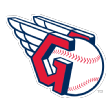 Cleveland Indians (50-38, second in AL Central)
Cleveland Indians (50-38, second in AL Central)
Injuries to the rotation (Corey Kluber and Mike Clevinger, plus Carlos Carrasco's battle with leukemia), Jose Ramirez's mysterious collapse and a failure to realistically address their outfield production this past winter have hampered the Indians, though a 22-9 run since the start of June has halved their division deficit and boosted their playoff odds back above 50%.
Barring a major slide, it's difficult to see Antonetti dealing Bauer (unless it's in the name of clubhouse harmony) or closer Brad Hand. Help in the infield -- preferably at second base, where Jason Kipnis is well past his sell-by date -- and a corner bat, preferably right-handed (the Indians' 82 wRC+ against lefties is the majors' seventh-worst), as well as some rotation help would go a long way toward boosting Cleveland's odds.
 Boston Red Sox (49-41, third in AL East)
Boston Red Sox (49-41, third in AL East)
As was the case so often during his otherwise-stellar run as the Tigers' general manager, Red Sox president of baseball operations Dave Dombrowski has fallen short yet again when it comes to building a championship-caliber bullpen. Having failed to adequately replace free agents Craig Kimbrel and Joe Kelly, the Sox say they're eyeing Nathan Eovaldi, due to return from injury in the next week or so, to take over a role as a back-of-the-game reliever.
But Eovaldi has never done that job before, and banking on his health might be a fool's errand. Thus the Red Sox are expected to be very active in the reliever market, and they could use a starting pitcher as well given the struggles of Rick Porcello and the revolving door at the fifth spot, particularly if Eovaldi is bullpen-bound once he returns.
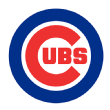 Chicago Cubs (47-43, first in NL Central)
Chicago Cubs (47-43, first in NL Central)
Yes, the Cubs lead the division, but Theo Epstein isn't wrong to expect more from the team given its $211 million payroll and its 18-25 record since May 22, the National League's second-worst mark in that span, ahead of only the Mets. Last week, the Cubs' president of baseball operations threatened "a ton of change" and wouldn't rule out selling at the deadline.
The recent signing of Craig Kimbrel suggests buying is much more likely; if so, help at second base (where Daniel Descalso and the now-toxic Addison Russell haven't been the answer) and in the outfield (where only Jason Heyward has been reliable) appear in order, even if Ben Zobrist returns from the restricted list, where he has been since May 7 while dealing with a divorce. Concerns about Cole Hamels' recent oblique strain could lead Chicago to enter the market for starting pitching as well.
 St. Louis Cardinals (44-44, third in NL Central)
St. Louis Cardinals (44-44, third in NL Central)
The Cardinals are at .500, haven't come close to playing up to their capabilities on either side of the ball, and are in danger of extending their postseason drought to four seasons, their longest of the wild-card era. Yet the Cardinals are just two games out of the NL Central lead, which puts a whole lot of pressure on president of baseball operations John Mozeliak, who doesn't have much flexibility to move underperformers such as Yadier Molina, Paul Goldschmidt, Miles Mikolas and Jack Flaherty out of the way; the same would be true for Matt Carpenter if not for the back spasms that recently sent him to the injured list.
Rotation help, bullpen help (the Cardinals just lost closer Jordan Hicks to Tommy John surgery), extra bats for the infield and outfield -- preferably lefty, as their 87 wRC+ against righties is the majors' eighth-worst -- it's fair to say that the Cards need help all over the place.
